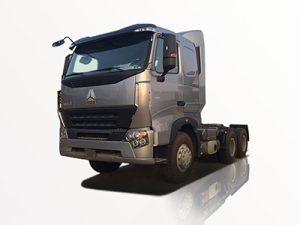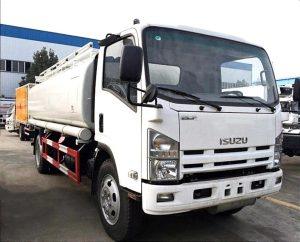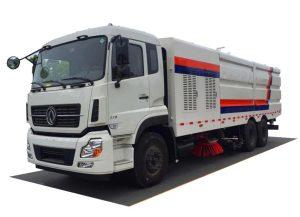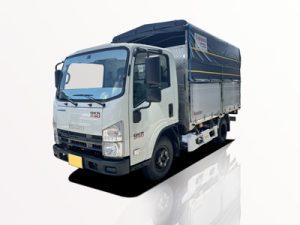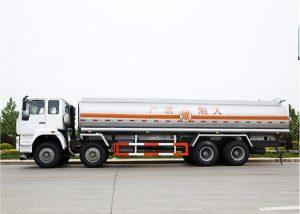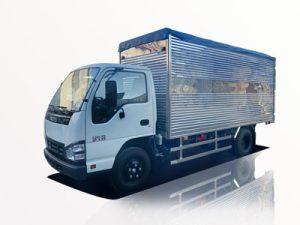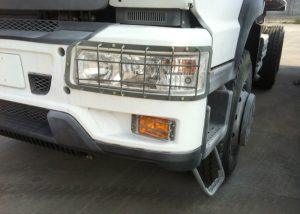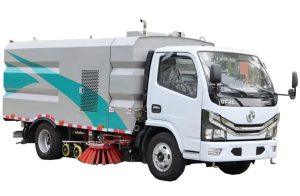Monday to Saturday - 8:00 -17:30
Discover the Joy of Traveling in a Small Ford Motorhome
Are you looking for a way to combine adventure with the comforts of home? A small Ford motorhome might be just what you need. These compact yet robust vehicles offer the perfect blend of convenience and mobility, allowing you to explore the great outdoors without sacrificing comfort. This article dives deep into everything you need to know about small Ford motorhomes, from their advantages and features to practical tips for selecting and maintaining one.
What is a Small Ford Motorhome?
A small Ford motorhome is a recreational vehicle (RV) that is built on a Ford chassis. Known for their reliability and practicality, these motorhomes range in size and design but typically offer a more compact and maneuverable alternative to larger RVs. The size makes them ideal for traveling, making them an excellent choice for couples, small families, or solo adventurers.
Advantages of Choosing a Small Ford Motorhome
1. Easy to Drive and Park
One of the major benefits of a small Ford motorhome is its driveability. Compared to larger RVs, these vehicles are easier to handle and park, especially in crowded areas or scenic small towns. They often fit into regular parking spots and can navigate tight spaces with greater ease.
2. Fuel Efficiency
Small Ford motorhomes generally offer better fuel efficiency than their larger counterparts. This means you can travel further with less expense. Models like the Ford Transit or the Ford E-Series are designed to provide good mileage while still delivering power and performance.
3. Comfort and Amenities
Despite their size, small Ford motorhomes come equipped with various features that enhance comfort. Many models include kitchenettes, bathrooms, and sleeping areas, making them feel like a true home away from home.
4. Versatility
Whether you’re planning a weekend camping trip or a cross-country adventure, small Ford motorhomes adapt to various travel needs. You can easily convert the living space to make room for additional gear or guests.
5. Budget-Friendly Options
Small Ford motorhomes are often more affordable than larger RVs, both in initial cost and ongoing maintenance expenses. This makes them an attractive option for those new to RVing or on a tight budget.
Types of Small Ford Motorhomes
Small Ford motorhomes come in various types, each designed to cater to different needs and preferences. Here’s a quick overview of the most popular models:
| Model | Length | Sleeps | Features |
|---|---|---|---|
| Ford Transit Van Conversion | 21-24 ft | 2-4 | Customizable interiors, excellent fuel economy |
| Winnebago Warpeg | 22-25 ft | 2-4 | Bathroom, kitchen, slide-outs |
| Forest River Forester | 24-26 ft | 4-6 | Generous living space, outdoor awnings |
| Thor Motor Coach Sequence | 22 ft | 2-4 | Bathroom, solar panel, modern amenities |
Choosing the Right Small Ford Motorhome
When selecting a small Ford motorhome, consider the following factors:
1. Size and Layout
Determine how many people will be traveling and how much space you need. Make sure to evaluate the layout and features to ensure they meet your needs, such as sleeping arrangements and kitchen space.
2. Budget
Set a realistic budget for your purchase, considering not only the cost of the motorhome but also ongoing costs such as insurance, maintenance, and fuel. A smaller model can often save you money upfront and in the long run.
3. New vs. Used
New motorhomes come with warranties and the latest features but can be more expensive. Used models can provide significant savings, but be sure to have them inspected for any issues.
4. Amenities
Consider what amenities are important to you. Do you need a full kitchen? A separate bathroom? Or maybe an outdoor shower? Make a list of must-have features to compare models easily.
5. Driving Comfort
When possible, take potential models for a test drive. Comfort while driving is crucial, especially for longer trips. Pay attention to visibility, maneuverability, and seating comfort.
Practical Tips for Using Your Small Ford Motorhome
1. Planning Your Route
Before hitting the road, plan your route carefully. Use apps specifically designed for RV travel that help you find suitable campgrounds and avoid roads with low bridges or steep grades.
2. Setting Up Camp
When arriving at a campsite, setting up efficiently can enhance your camping experience. Familiarize yourself with your motorhome’s systems, such as water, propane, and electrical hookups, to avoid delays.
3. Safety Checks
Always perform safety checks before heading out. Check tire pressure, fluid levels, and brakes. Keeping your motorhome in good condition enhances safety and peace of mind during your travels.
4. Embracing Minimalism
Living in a small motorhome requires a shift in mindset. Embrace minimalism by packing only what you truly need. This not only saves space but also makes for easier living while on the road.
5. Explore Off-the-Beaten-Path Locations
Take advantage of your small motorhome’s agility. Explore lesser-known destinations that larger RVs may not be able to access, uncovering hidden gems along the way.
Maintenance for Your Small Ford Motorhome
Regular maintenance is key to ensuring your motorhome remains in top condition. Here are some essential maintenance tips:
1. Routine Inspection
Conduct routine inspections for leaks, rust, and wear on seals and gaskets. Catching issues early can save on costly repairs later.
2. Fluid Checks
Regularly check and change fluids, including engine oil, transmission fluid, and antifreeze. Keeping these fluids clean and at proper levels enhances performance.
3. Tire Maintenance
Monitor tire condition and pressure. Properly inflated tires improve fuel efficiency and driving safety.
4. Keeping it Clean
Regularly clean both the interior and exterior of your motorhome to prevent wear and tear. Consider using protectants for surfaces exposed to the elements.
5. Winterizing Your Motorhome
If you plan to store your motorhome during colder months, winterize it properly. This includes draining water lines and adding antifreeze to systems to prevent damage.
Frequently Asked Questions (FAQ)
1. How much does a small Ford motorhome cost?
The cost can vary widely, from around $30,000 for a basic used model to over $100,000 for new, fully equipped options. Always factor in additional costs like insurance and maintenance.
2. What is the average fuel economy?
On average, small Ford motorhomes achieve between 12 to 20 miles per gallon, depending on the model and driving conditions.
3. Can I tow a small vehicle behind a small Ford motorhome?
Yes, many small Ford motorhomes are capable of towing a small car or trailer. Always check the manufacturer’s specifications for towing capacity.
4. What kind of insurance do I need for a motorhome?
You’ll need RV insurance, which covers liability, property damage, and often includes options for personal belongings, roadside assistance, and more.
5. How do I find campsites suitable for small RVs?
Use RV-specific apps like Campendium or RV Parky, which provide user-generated reviews and details about campgrounds that accommodate smaller RVs.
6. Are small Ford motorhomes suitable for full-time living?
While designed for short trips, many people successfully live full-time in small Ford motorhomes by maximizing space and implementing effective organization strategies.


